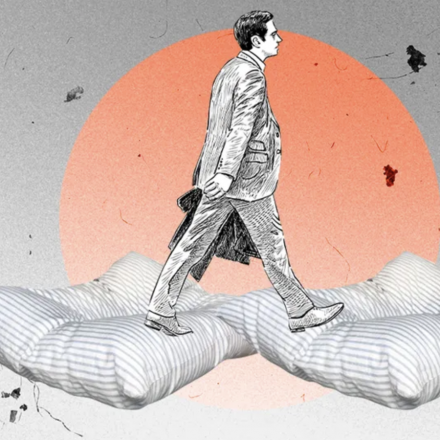In a world where productivity has become the new religion, the ability to rest is often seen as a weakness. A man who’s always on the move, always chasing growth and results, is admired and respected. But behind this constant drive for success hides a real danger — burnout, anxiety, and health issues. If you recognize yourself in any of the signs below, it’s time to take a step back.
You think rest just means switching tasks
After work, you don’t relax — you dive into chores, answer messages, or tackle a side project. You think shifting your focus helps you unwind, but your brain is still in work mode. Real rest means stepping away from all that. A walk, a hobby, or a movie — that’s what helps you recharge.
You feel guilty when you try to relax
If doing nothing or spending time on something you love makes you feel uneasy, that’s a red flag. Rest doesn’t steal time — it restores your energy and supports your mental health. Don’t punish yourself for taking a break.
You look down on people who know how to rest
You assume that people who prioritize rest over hustle are lazy or lack ambition. To you, workaholics are the real heroes. But the truth is, you’re judging others to justify your own inability to relax and to avoid confronting your inner doubts.
You struggle to do absolutely nothing
Even a single free minute feels like a missed opportunity. You can’t just sit and watch a show or chill without anxiety creeping in. And if you do try to rest, you’re multitasking — checking emails, replying to colleagues. Without constant action, you feel guilty.
You brag about being busy all the time
You take pride in always having something to do and love telling people how much you work. You believe that being busy proves your value and productivity. Sometimes you even exaggerate it, playing up your exhaustion and lack of sleep. Deep down, you're afraid that without work, you wouldn’t matter.
You think no one else can do it as well as you
You don’t trust your coworkers or team to handle things, so you micromanage every detail. Delegating feels risky — because “it’s easier if I just do it myself.” Feeling indispensable may boost your ego, but it drains you and makes true rest impossible.
You constantly talk about the sacrifices you make for work
You tell stories about sleepless nights, working weekends, or giving up your personal life for a project. Instead of just doing your job, you turn it into a competition of endurance. In the end, people start feeling sorry for you instead of admiring you.
You never fully disconnect — not even on weekends
You’re always available — checking emails, replying to messages, even on holidays or days off. You call it being responsible or a team player. But really, you don’t know how to rest, you don’t trust others, and you can’t let go of control.


















